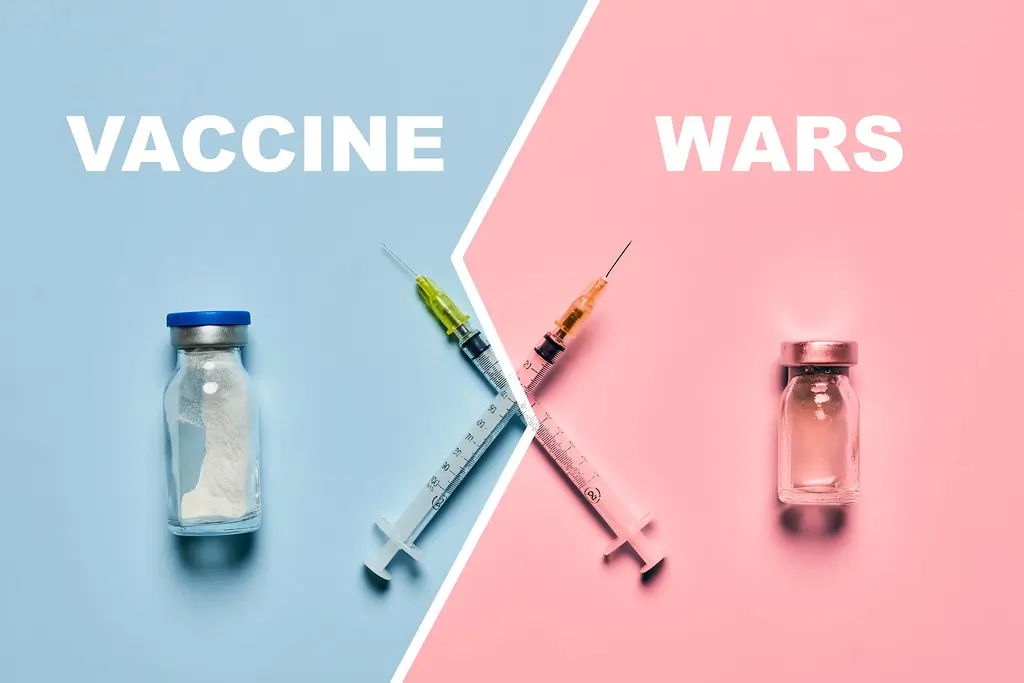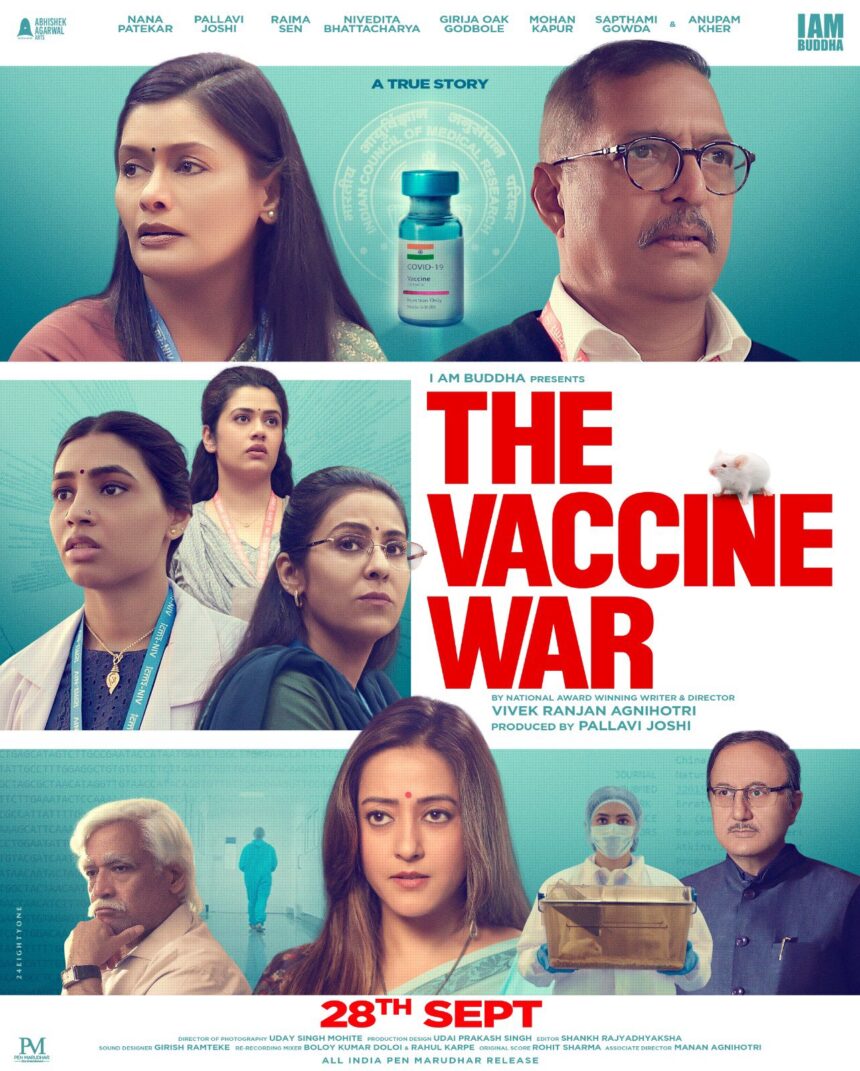Introduction
“The Vaccine War,” directed by Vivek Ranjan Agnihotri and produced by Pallavi Joshi and I am Buddha Productions, is set to be digitally released on Disney+ Hotstar on November 24, 2023, as announced by the makers on Thursday. The movie has become a subject of much debate and critique in the world of cinema. While the film boasts commendable performances, notably from veteran actor Nana Patekar, its portrayal of the pandemic and the subsequent narrative choices have attracted considerable criticism. This analysis aims to delve into these critiques, offering a comprehensive overview of the film’s reception from various critical lenses.
The Vaccine War : Government Mouthpiece Allegations
A significant point of critique comes from The Times of India, which comments on the film’s tendency to act as a government mouthpiece, disguising itself as a medical drama. This observation is crucial as it suggests a heavy-handed approach to the narrative, potentially undermining the film’s artistic integrity and its role as a medium for unbiased storytelling. The concern here is that the film might prioritize a particular political or ideological stance over the objective portrayal of events, thereby influencing audience perceptions in a one-directional manner.

Unbiased Portrayal: A Missed Opportunity?
The Week’s critique that the film, despite being watchable, fails to offer an unbiased portrayal of the pandemic, is another critical perspective that cannot be overlooked. In the realm of films dealing with real-life events, especially something as globally impactful as a pandemic, the expectation is often to provide a multifaceted view that captures the complexity and nuances of the situation. The critique here implies that “The Vaccine War” may have missed an opportunity to delve into the pandemic’s multifaceted impacts, instead presenting a more unidimensional narrative.
Documentary or Drama: The Blurred Lines
News18’s observation about the film straddling the realms of documentary and drama is an intriguing point of critique. The film is noted to have elements of both, which while making it informative, also raises questions about its approach to storytelling. Is the film aiming to educate, to entertain, or to influence? This duality in style, especially in the context of a sensitive subject like a pandemic, is a double-edged sword – it can enhance viewer engagement, but also lead to ambiguities regarding the film’s intent and factual accuracy.
One-Sided Narrative Concerns
The Hindustan Times highlights an important aspect of the film’s narrative – its tendency to be one-sided in parts. In the context of a global crisis, a one-sided narrative can lead to an oversimplified portrayal of complex events. This criticism points towards the potential exclusion of certain perspectives or facts, which might have provided a more balanced and comprehensive understanding of the pandemic’s impact.
Nationalistic Fervour: Artistic Choice or Propaganda?
Rediff.com’s critique about the film leaning towards nationalistic fervour adds another dimension to the analysis. Cinema has always been a powerful tool for stirring emotions and beliefs, and when a film appears to lean heavily towards promoting nationalism, it raises questions about its purpose. Is the film using the backdrop of the pandemic to foster a sense of national pride, and if so, is this at the expense of a more balanced and nuanced portrayal? Such a leaning could potentially narrow the film’s scope and impact, reducing its ability to resonate with a diverse audience
In wrapping up the critical analysis of “The Vaccine War,” it becomes evident that while the film has its merits in terms of performance and watchability, it is mired in controversy over its narrative choices. The critiques raise crucial questions about the role of cinema in times of crisis, the responsibilities of filmmakers in representing real-life events, and the fine line between art and propaganda. By potentially serving as a mouthpiece for certain views, lacking an unbiased portrayal, and leaning towards nationalistic fervour, “The Vaccine War” exemplifies the challenges and responsibilities inherent in creating cinema that reflects on contemporary historical events.
As audiences and critics continue to dissect the film’s narrative and its implications, it remains a pertinent example of the power of cinema to shape public discourse and perception. Whether “The Vaccine War” will be remembered as a cinematic milestone or a controversial footnote in the portrayal of the pandemic is a question that only time and continued critical examination will answer.








